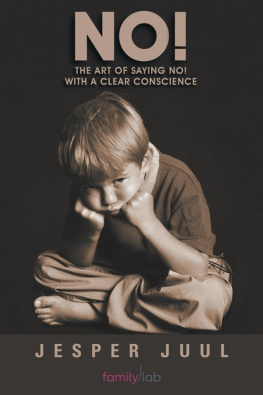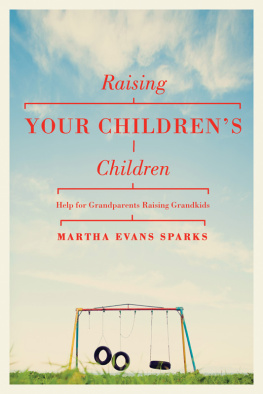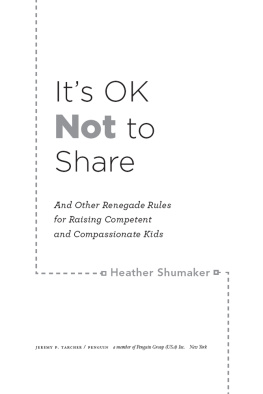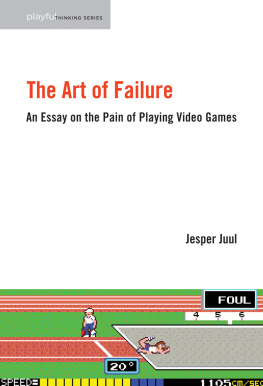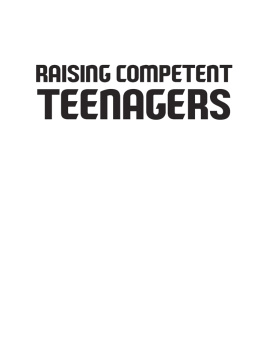Jesper Juul - Raising Competent Children: A New Way of Developing Relationships With Children
Here you can read online Jesper Juul - Raising Competent Children: A New Way of Developing Relationships With Children full text of the book (entire story) in english for free. Download pdf and epub, get meaning, cover and reviews about this ebook. year: 2013, publisher: Rockpool Publishing, genre: Home and family. Description of the work, (preface) as well as reviews are available. Best literature library LitArk.com created for fans of good reading and offers a wide selection of genres:
Romance novel
Science fiction
Adventure
Detective
Science
History
Home and family
Prose
Art
Politics
Computer
Non-fiction
Religion
Business
Children
Humor
Choose a favorite category and find really read worthwhile books. Enjoy immersion in the world of imagination, feel the emotions of the characters or learn something new for yourself, make an fascinating discovery.

- Book:Raising Competent Children: A New Way of Developing Relationships With Children
- Author:
- Publisher:Rockpool Publishing
- Genre:
- Year:2013
- Rating:5 / 5
- Favourites:Add to favourites
- Your mark:
- 100
- 1
- 2
- 3
- 4
- 5
Raising Competent Children: A New Way of Developing Relationships With Children: summary, description and annotation
We offer to read an annotation, description, summary or preface (depends on what the author of the book "Raising Competent Children: A New Way of Developing Relationships With Children" wrote himself). If you haven't found the necessary information about the book — write in the comments, we will try to find it.
Jesper Juul: author's other books
Who wrote Raising Competent Children: A New Way of Developing Relationships With Children? Find out the surname, the name of the author of the book and a list of all author's works by series.
Raising Competent Children: A New Way of Developing Relationships With Children — read online for free the complete book (whole text) full work
Below is the text of the book, divided by pages. System saving the place of the last page read, allows you to conveniently read the book "Raising Competent Children: A New Way of Developing Relationships With Children" online for free, without having to search again every time where you left off. Put a bookmark, and you can go to the page where you finished reading at any time.
Font size:
Interval:
Bookmark:
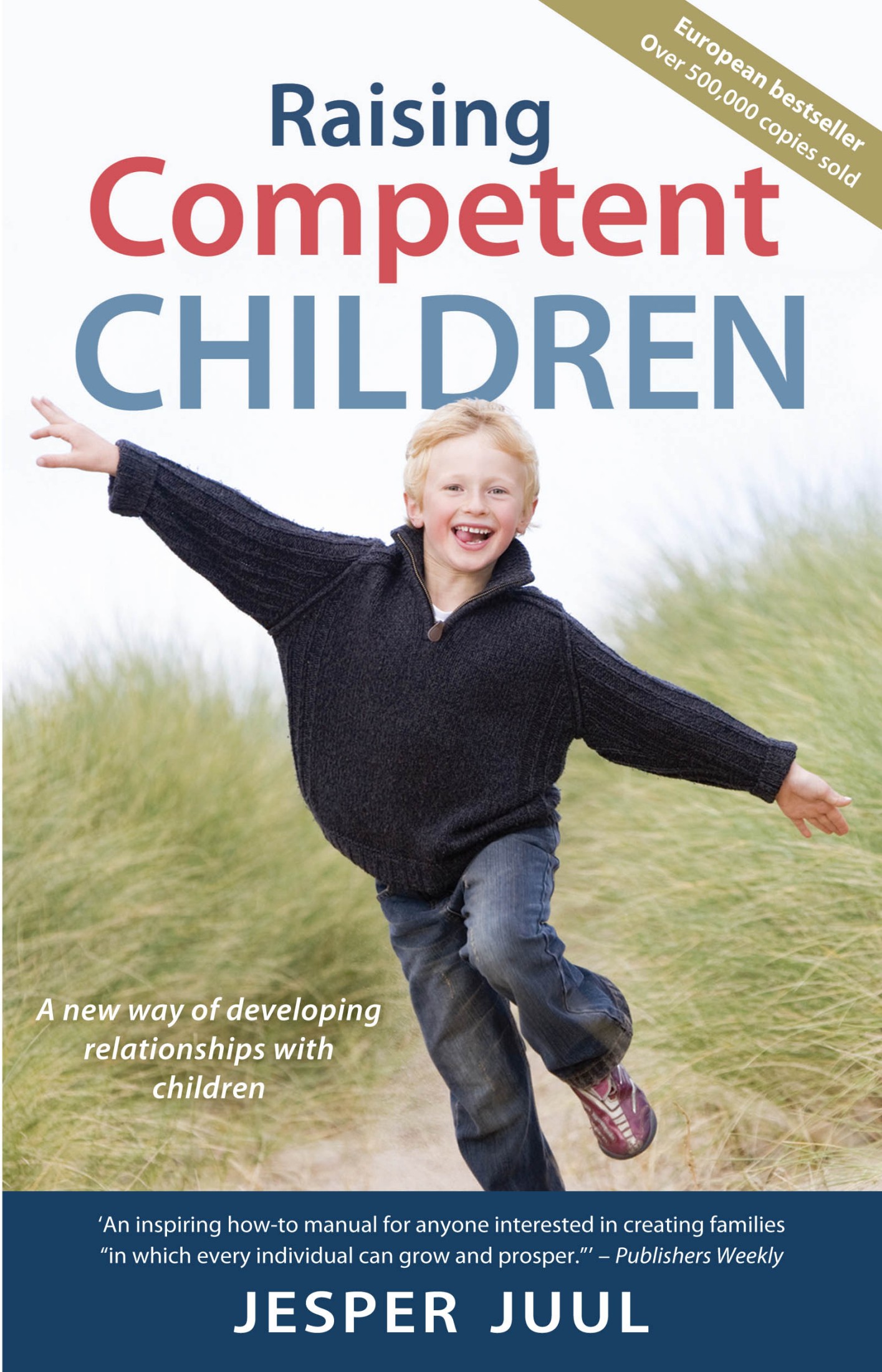
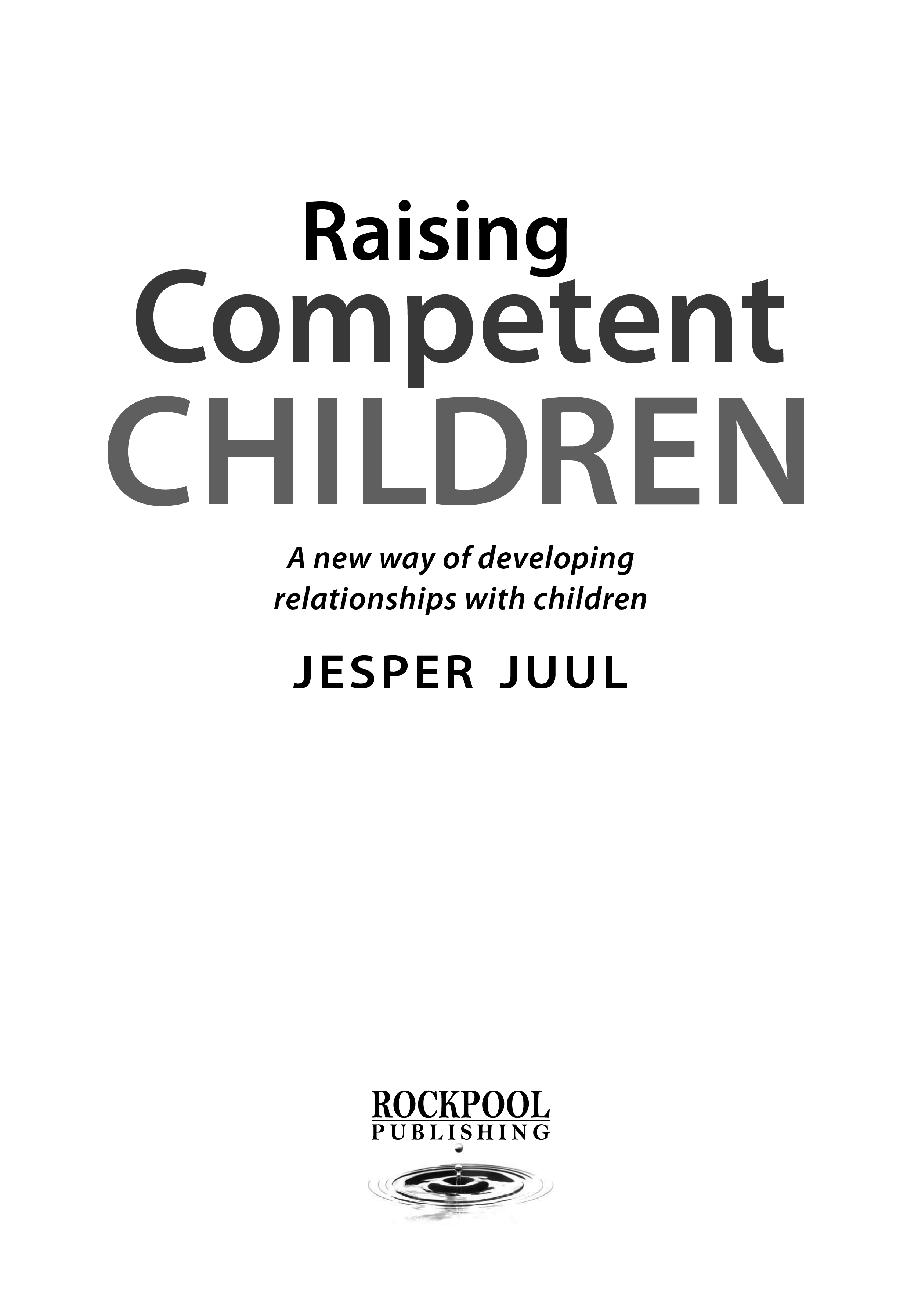
Contents
Ackn owledgments
The theories and many of the examples used in this book arose from my work at The Kempler Institute of Scandinavia in Denmark. To Walter Kempler, M.D., and the other staff members of the Institute, my sincere thanks for their inspiration and for their unfailing confidence in me during the many years when I had little confidence in myself.
My thanks are also due to the many families from all over the world who let me into their personal and private lives. I recall with embarrassing clarity my attitudes and prejudices upon meeting many of them for the first timethose from Japan and Islamic countries, families of mixed ethnic origins in the Croatian refugee camps, and American families ravaged by alcoholism, to name a few.
My grown son, now 37, has helped me to integrate my experiences in a way that can be done only by someone who is openly and honestly searching for his own life. The same applies to my wife, whose very existence confronts me with what I hope each time are the last remnants of my childish self-centredness.
Preface to the 5th English Edition
When the 1st edition of this book was published I had the feeling that many societies around the globe were well on their way to establish more healthy and constructive relationships with children and youth and between adults as well. Today Im not convinced that this is happening, although there is tons of good will supporting such efforts.
With my knowledge of parents and other adults living and working with children I had expected that our societies would welcome their competent children and celebrate their competence and feedback. To a great extent this happened within families. Although many parents found it difficult to transform their inherited ways and roles many succeeded and discovered an abundance of hidden treasures in their co-existence with children.
Among teachers, counsellors and others working with children something else happened. They felt not only provoked but also disrespected by the competent children and sometimes even by the very fact that children are indeed far more competent than they were led to believe in their educations and trainings. Many started dreaming and talking about the good old days.
This has raised a basic question which all of us must find our own answers to: What do I want?
Which are the human and social qualities that each of us would like to see in our children/pupils/students when they turn twenty? For me, with my profession in mind, I would like to see young adults with a strong and durable mental health and solid psychosocial competences, none of which are disturbing academic or creative achievement. On the contrary they are enhancing these efforts and aspirations.
I actually believe that most of us would like to see thatparents, teachers and politicians as well as paediatricians, grandparents and neuroscientists. In relation to this objective the so-called good old days as well as a lot of contemporary attempts to raise and educate children were disastrous. You only need to take a look at your national statistics for: alcoholism, drug abuse, crime, mental illness, domestic violence, child abuse, rape, school dropouts, eating disorders, suicides and suicide attempts, bullying and a whole bunch of behaviour diagnoses, over-consumption of prescription drugs and dependencies to realise this. All these phenomenon are not only causing colossal human suffering but the sheer costs of trying to treat, prevent and control them have reached levels that we can no longer afford.
The past two decades of clinical as well as pedagogical praxis has convinced me that only by adopting a new paradigm will we be able to develop in healthier ways. This paradigm is already available if we combine the experiences and know-how of the most successful families with all the evidence from the new developmental psychology, attachment theory and the findings of neuroscience plus thousands of successful projects around the globe. We know what to do. All we need to learn is how to do it. I hope that reading this book will be an incentive to begin or continue on, whatever you current position might be.
Jesper Juul
Familylab International
Introdu ction
Like so many people my age, I knew when I was in my twenties that there was something wrong with the way in which my parents generation (and the generations before them) looked upon the structure of the family and the raising of children.
In the course of the decade that followed, as I trained to become a family therapist working with so-called maladjusted children and young people, and with groups of single mothers I realised that my attitudes about families and child rearing were neither better nor worse than those of my parents. In fact, our thoughts had the same fundamental weaknesses. First, they lacked ethical substance. Second, they were formulated according to an arrogant and polarising assumption: some people are right, because they act in accordance with the right attitudes, and other people are wrong, because they act in accordance with the wrong attitudes.
This tendency to polarise was also inherent in the feedback I received from my colleagues and clients. Some of them thought that I was good at what I was doing; others didnt. In my navet I thought that as long as the first group was in the majority, I was safe. It took some time before I realised that I should have listened to those from the dissenting group. This didnt happen until I became a father and experienced my own lack of competence. Thats when my education began. Until then, Id only been in training.
Before I became a father, I believed that families should be characterised by understanding and tolerance, and that relationships between parents and children should be democratic. This approach was in direct contrast with the moralising, intolerant, and controlling type of upbringing that I knew was destructive for childrens self-esteem and vitality.
But as I spent time with my son, and through my everyday work with families with children, I began to realise how superficial my attitudes were. Granted, our understanding of the role of children in family and society has changed in many ways from what it was when I was growing up. Our grasp of human nature, our means of punishment, and our attitudes toward educational and public morality have all become more humane and less restrictive. Yet I became aware of two factors that challenged and pained me both professionally and personally.
As a teacher and supervisor, I saw firsthand, all too often, that parents were struggling. They would meet with therapists to discuss their children, and they would leave the meetings feeling like losersless able to take action and more inadequate than when they arrived. And the therapists with whom they met also left these meetings feeling helpless and incompetent. Yet bound by duty, they clung to traditional clinical psychology, which is more concerned with finding fault than it is with identifying possibilities.
As a family therapist, I saw that children and young people still had to bear the brunt of this disconnection. We still saddle children with a responsibility that few parents, politicians, educators, teachers, or therapists are willing to take upon themselves. We are not motivated by ill will; on the contrary, we love our children and believe that they need to shoulder this responsibility in order to grow. But our logic is flawed. Our fundamental understanding of what kind of beings children are is mistaken.
Font size:
Interval:
Bookmark:
Similar books «Raising Competent Children: A New Way of Developing Relationships With Children»
Look at similar books to Raising Competent Children: A New Way of Developing Relationships With Children. We have selected literature similar in name and meaning in the hope of providing readers with more options to find new, interesting, not yet read works.
Discussion, reviews of the book Raising Competent Children: A New Way of Developing Relationships With Children and just readers' own opinions. Leave your comments, write what you think about the work, its meaning or the main characters. Specify what exactly you liked and what you didn't like, and why you think so.

